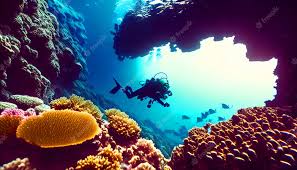The enchanting world below the water’s surface has always possessed an irresistible allure for both adventurers and artists. For those with an enthusiasm for photography, the underwater domain provides a wholly distinct realm to investigate. You are welcome to the captivating realm of underwater photography, where every shutter click unveils a universe teeming with vibrant marine life, haunting shipwrecks, and breathtaking seascapes. In this article, we will delve deeply into Yvette Heiser Texas – Exploring the Art of Underwater Photography, from the equipment you require to the methods that will assist you in mastering this demanding yet fulfilling pursuit.

Essential Equipment: Preparing for Submersion
Before embarking on your journey into underwater photography, it is imperative to adequately equip yourself.
1. Underwater Camera Enclosure: Your camera needs safeguarding from water. Invest in a top-tier underwater enclosure that snugly accommodates your camera model.
2. Camera and Lens: Opt for a camera that suits your proficiency level. Many photographers favor mirrorless cameras for their compactness and adaptability. Wide-angle lenses are ideal for capturing expansive seascapes, while macro lenses bring minute marine creatures into sharp focus.
3. Strobes or Lights: Illuminating underwater scenes can be challenging due to color and contrast loss. Strobes or underwater lighting aids in restoring vitality to your photographs.
4. Filters: Depending on water conditions, you may require filters to rectify color discrepancies and diminish glare. Polarizers and red filters are commonly employed.
5. Buoyancy Control: Maintaining neutral buoyancy is vital to avoid disturbing marine life and obtaining the perfect shot. You can invest in a buoyancy control device (BCD) and practice with it before submerging.
Techniques for Masterful Underwater Photography
Now that your equipment is prepared let’s explore various techniques for achieving excellence in underwater photography:
1. Mastery of Buoyancy: Achieving perfect buoyancy is an acquired skill. Hone your abilities in shallow waters, mastering graceful underwater movement without disturbing the ecosystem.
2. Composition: Apply composition principles such as the rule of thirds, leading lines, and framing to craft visually captivating images. Keep in mind that underwater scenes can be tumultuous, making compositional balance critical.
3. Depth Control: Different depths offer distinct photographic prospects. Shallow waters often boast more vivid colors, while deeper regions may unveil dramatic seascapes and shipwrecks. Experiment with various depths to discover your preferred subjects.
4. Light Management: As you descend, natural light diminishes. Acquire the skills to collaborate with ambient light, strobes, and other lighting techniques to establish the desired ambiance and accentuate your subjects.
Immerse Yourself and Capture the Enchantment
Mastering the art of underwater photography constitutes a voyage that amalgamates technical proficiency with artistic perception. It necessitates dedication, practice, and a profound reverence for the mysteries of the deep. If you are prepared to submerge yourself and capture the enchantment of the underwater world, check out Yvette Heiser – Tips to Elevate Your Image Resolution for Stunning Photography and allow the abyss to become your canvas. The ocean’s mysteries await your lens.
